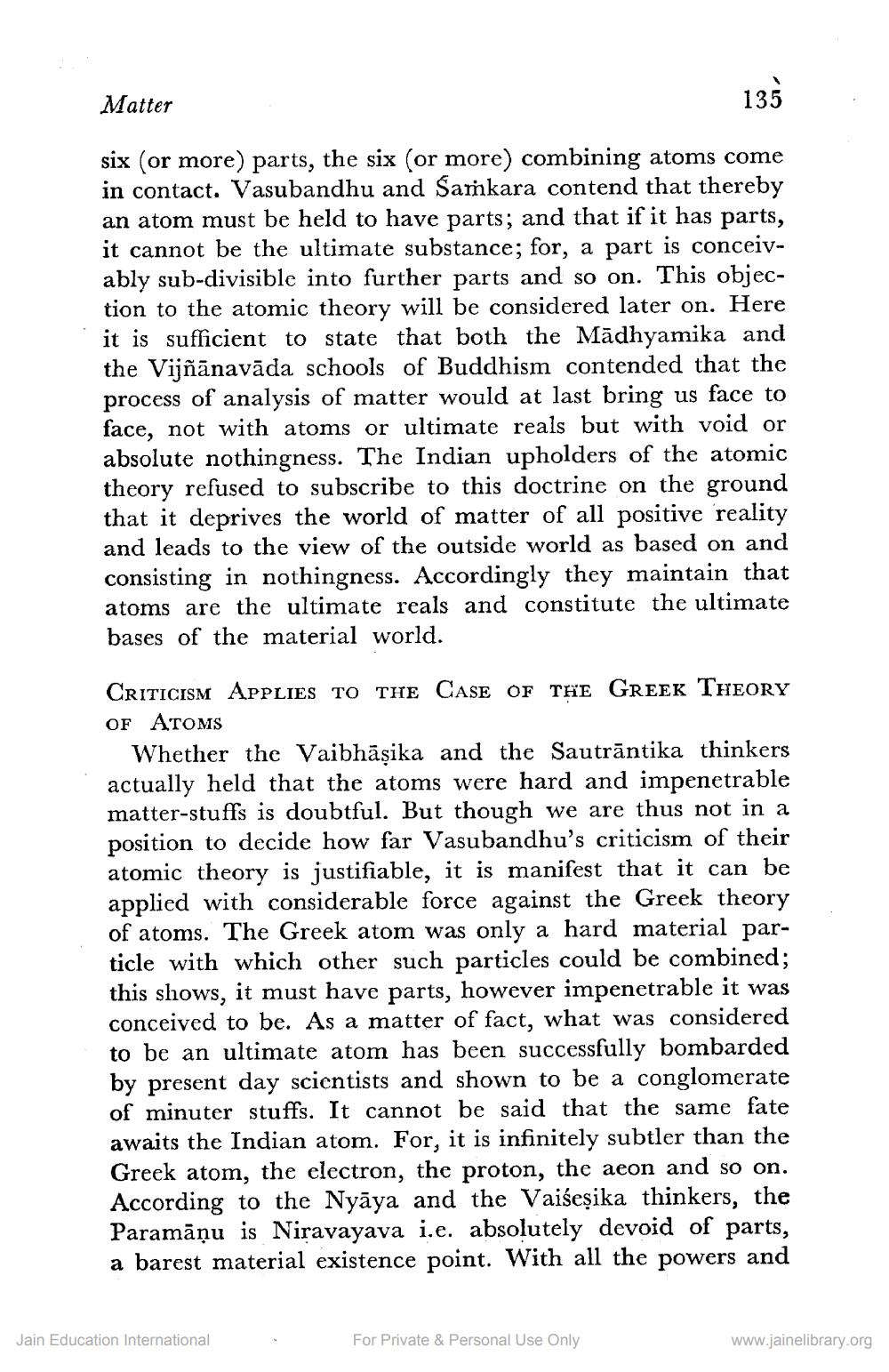________________
Matter
135
six (or more) parts, the six (or more) combining atoms come in contact. Vasubandhu and Samkara contend that thereby an atom must be held to have parts; and that if it has parts, it cannot be the ultimate substance; for, a part is conceivably sub-divisible into further parts and so on. This objection to the atomic theory will be considered later on. Here it is sufficient to state that both the Madhyamika and the Vijñānavāda schools of Buddhism contended that the process of analysis of matter would at last bring us face to face, not with atoms or ultimate reals but with void or absolute nothingness. The Indian upholders of the atomic theory refused to subscribe to this doctrine on the ground that it deprives the world of matter of all positive reality and leads to the view of the outside world as based on and consisting in nothingness. Accordingly they maintain that atoms are the ultimate reals and constitute the ultimate bases of the material world.
CRITICISM APPLIES TO THE CASE OF THE GREEK THEORY OF ATOMS
Whether the Vaibhāșika and the Sautrāntika thinkers actually held that the atoms were hard and impenetrable matter-stuffs is doubtful. But though we are thus not in a position to decide how far Vasubandhu's criticism of their atomic theory is justifiable, it is manifest that it can be applied with considerable force against the Greek theory of atoms. The Greek atom was only a hard material particle with which other such particles could be combined; this shows, it must have parts, however impenetrable it was conceived to be. As a matter of fact, what was considered to be an ultimate atom has been successfully bombarded by present day scientists and shown to be a conglomerate of minuter stuffs. It cannot be said that the same fate awaits the Indian atom. For, it is infinitely subtler than the Greek atom, the electron, the proton, the aeon and so on. According to the Nyāya and the Vaišeșika thinkers, the Paramāņu is Niravayava i.e. absolutely devoid of parts, a barest material existence point. With all the powers and
Jain Education International
For Private & Personal Use Only
www.jainelibrary.org




